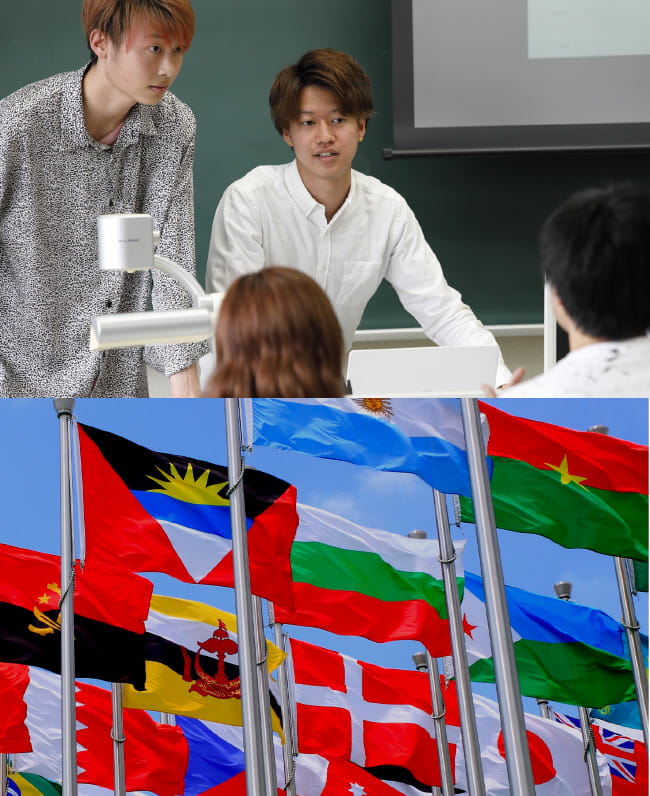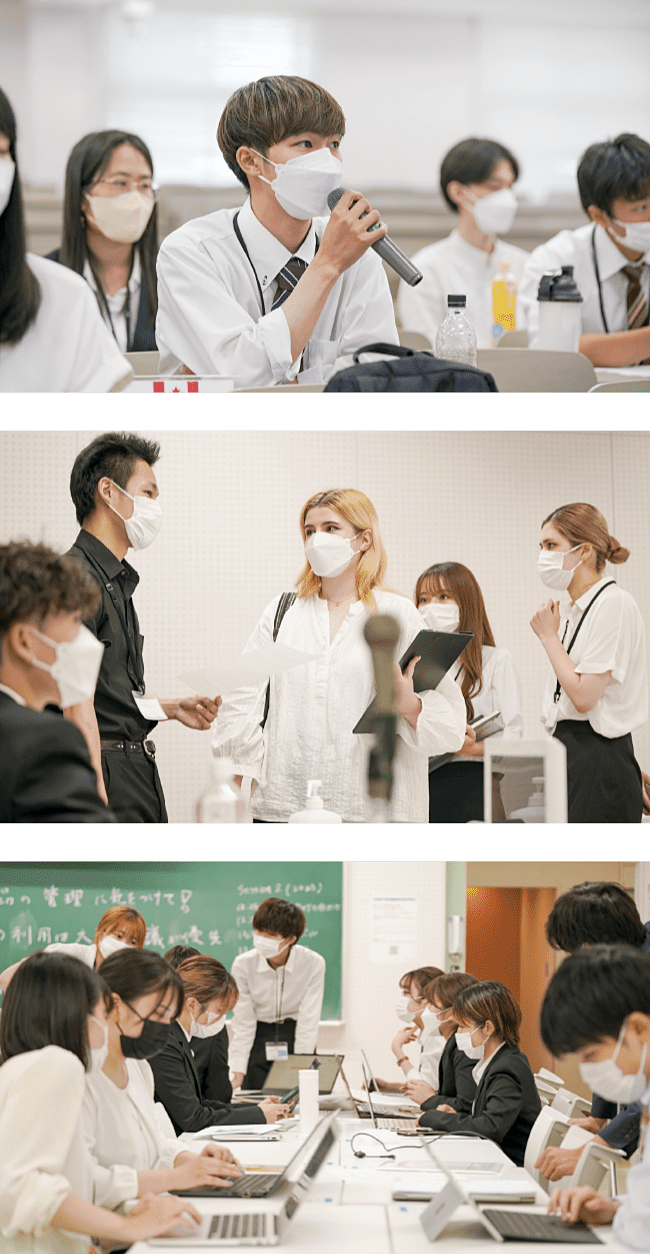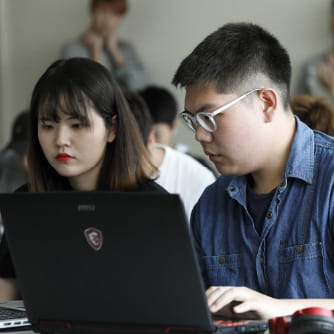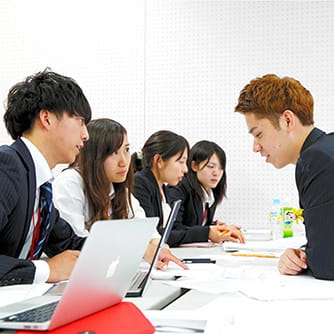

What is GSG?
Global Simulation Gaming
GSG is a class taken by all second-year students in the International Relations Major and the Global Studies Major. In GSG, students act out the roles of federations (international organizations, NGOs, states, etc.) and engage in simulated international negotiations in order to solve real global issues. Students take the initiative by developing a plan of action and carrying out negotiations in order to solve problems. They experience the process of utilizing the knowledge they acquired, and applying it to the challenges modern society currently faces.
LINK: Find out more about GSG


The Process of GSG
*FY2021 Results
Previous sessions
*FY2021 Results
Around December
- January
Questionnaire for Theme Preference
Students select an International Relations theme they are most interested in covering during the GSG. The theme that gained the most votes will be conferred in the game.
- Theme choices for previous years:
-
- International immigration and refugee issues
- International food and water issues (access to food and water, promotion of agriculture and fisheries, etc.)
- Trade and investment issues (regional integration, FTAs, etc.)
- Energy and climate change issues (including nuclear power)
- International poverty alleviation and sustainable development issues (2030 Agenda/SDGs, etc.)
- Security issues
- Health and sanitation issues
Around December
- January
Questionnaire for Class allocation
Students choose their preferred language class (Japanese or English) and the acting role they would like to be assigned for the GSG. The questionnaire is used to allocate students in to classes representing different acting categories, and the language they would like to take the class in.
*For GS Major, only English can be selected.
- Examples of acting roles in past years:
- International Organizations, Sub-Saharan Africa, Middle East & North Africa, Pacific Rim, Europe, Asia, Latin America, NGOs, Corporations, etc.
End of March
Class Presentation
Presentations are held in each class. Classes are organised according to actor category and language of the class. Students are assigned to their classes based on the results of a questionnaire conducted in the Fall Semester of their first year.
Second year
spring semester
beginning of April
Assigning actors and roles
Students are split in to several groups. Each group nominates a main actor from their team, to represent a real country or an organization. Other acting roles such as president and foreign minister, are then allocated amongst the rest of the teammates.
mid-May
Research of assigned roles and themes
Students research the relationship between assigned representatives and the theme of the year, and strategies on how to negotiate for the benefit of their groupes. In the final task, the students summarise and film a video outlining the responsibilities of their assigned roles.
mid-May
Mini GSG #1 #2 #3[Joint class activity]
Based on the actor introduction video, students organize a Q&A session to clarify queries. We also hold mini-international conferences and practice negotiating freely amongst actors to deepen understanding of other roles.
This mini-GSG and policy review meeting is repeated three times.
May to June
Policy review meeting
#1 #2 #3
After the mini-GSG, the students strategize to gain dominance in the next round of negotiations. If necessary, they re-examine their policies, review the situation in order to further strengthen their position in the international community. They revise issues such as what kind of advocacy and actions are necessary to achieve their goals in the final negotiations, and which organisations are likely to be allies.


The mini-GSG and policy review meetings are alternately repeated three times
to deepen discussions in preparation for the GSG.
Beginning of July
GSG (International Negotiation, International Conference) Joint class activity
The GSG Event is held through the course of an entire day. A total of 2-3 sessions are held on the day, each session representing an entire calendar year. International negotiations and conferences are carried out in each session.

Beginning of July
Event review and evaluation
The participants re-evaluate the GSG as a whole by revisiting GSG minutes, and reviewing the actions taken by each representative and organisations.
Comments from GSG participants
Quotes from questionnaires
- Joining International Relations Major and Global Studies Major was a stimulating experience and I was able to gain new communication skills and methods.
- The actors were able to work together to promote the project. By learning about the policies of other countries, it became easier to formulate policies for my own country.
- Many ideas were discussed beforehand, and we were able to apply it to different situations.



